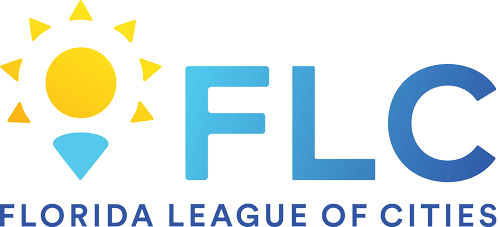As of October 1, 2024, a new state law (HB 1365) prohibits a city or county from allowing any person to regularly sleep or camp on public property overnight unless the county designates property for this purpose. If the property is within a city, it requires a majority vote of the city’s public council. A designated property requires the majority approval of the county’s governing body and the concurrence of the municipality if the designated property is within city limits.
The Florida Department of Children & Families gives final approval of designated property for the purpose of public camping or sleeping. Approval is based on the number of shelter beds available, the wrap-around services provided and running water and sewer. Designated public property for camping/sleeping will include access to substance abuse and mental health treatments. They will require occupants to not use drugs.
The Florida law was supported by a U.S. Supreme Court decision in June 2024 that paves the way for people to be jailed for sleeping in public places even if adequate shelter is unavailable.
The state allocated $30 million for continuums of care to prepare for the law. The law exempts fiscally constrained counties from the requirements of the public camping/sleeping area if the county can show compliance would result in fiscal hardship.
As of January 1, 2025, a resident or a business owner can sue for violations of the law. When a resident or business owner provides written notice of a violation, the county or city has five business days to correct the violation. If they fail, and the resident or business owner prevails, the city/county may seek an injunction and recover attorney fees/costs if they prevail.
Here is a sampling of how Florida cities are responding to the new law:
• City of DeLand: The City updated three ordinances and defined camping, unlawful storage of property and lying on public property.
• City of Fort Lauderdale: The City passed on first reading an ordinance that outlaws camping on public property 24/7. They are looking for a place downtown to put a full-service homeless assistance center. Providers who offer programming and housing could be relocated to the center. The location could include the community court program in which judges help homeless individuals charged with minor violations. The City also hopes to have a separate area of the jail for those who violate the camping ordinance where they could meet with service providers. The City is also working with community partners to find more shelter space. They are identifying ideas for temporary shelters and working with Broward County. The City also adapted its mobile app to allow the public to report violations of the ordinance. Police and the homeless outreach team will address violations.
• City of Gainesville: The City Commission approved the continuation of a contract that would grant almost $2 million to the homeless shelter GRACE Marketplace. The City has contracted with the Alachua County Coalition for the Homeless and Hungry to allow $1.5 million to GRACE Marketplace and $350,000 to fund GRACE’s supplemental emergency shelter. It will work with partners such as GRACE to find temporary shelters for people experiencing homelessness and connect them with support services, including rehab and mental health services. The City has weekly meetings with Grace.
• City of Jacksonville: The City has developed 12 recommendations, for a total cost of $13.6 million. The stated goal is to bring together stakeholders in the community to get Jacksonville to a “functional zero,” a term used to describe the number of individuals who become homeless as those who find permanent housing during the same year.
• City of Orlando: The City has designated funds toward the purchase or renovation of a facility to provide shelter and services. Staff are actively working with regional and local partners to identify potential sites, expand existing sites that are outside Orlando and re-engineer the current shelter services. The City is leveraging $58 million in federal funding through Accelerate Orlando, a once-in-a-generation investment to help advance the City’s Action Plan on Unsheltered Homelessness.
• City of Pensacola: At press time, the City was considering an ordinance that bans camping on private property and an amendment to an existing ordinance that bans camping on public property. Violators will receive a warning or civil citation of up to $50 the first time. Second and subsequent violations can result in a fine of up to $500 and/or up to 60 days in jail. The ordinance bans commercial property owners from allowing persons to camp on their property. The City is reaching out to people experiencing homelessness to inform them about the changes. It’s also partnered with Escambia County to provide options before forcing people who are homeless to move. Several area programs help people experiencing homelessness find work, health care and transitional housing.
• City of Sanford: The City mirrored a new ordinance to the state law.
• City of St. Petersburg: The City and local partners opened an affordable housing development in August. The public-private collaboration created apartment homes for special needs families earning less than 60% of the Area Median Income. Eighty percent of the units are for people who have experienced homelessness. The City contributed $910,000 to the project. This project supports the City’s Housing Opportunities For All Plan.
The Florida Department of Children and Families, through its Office on Homelessness, has launched a webpage to assist local governments with the certification of public encampment sites. In accordance with Section 125.0231, Florida Statutes, this resource hub is designed to help cities and counties navigate the certification process.
Key resources on the page include:
- Public Encampment Certification Checklist: A detailed, step-by-step guide that outlines documentation and procedures to meet certification requirements
- Financial Hardship Checklist: A resource for fiscally constrained counties that offers exemption options from certain site plan requirements
- Frequently Asked Questions (FAQs): A FAQ section addresses common concerns about the certification process, compliance and available resources
Visit the DCF website or click here to access these resources on the Florida League of Cities website.

